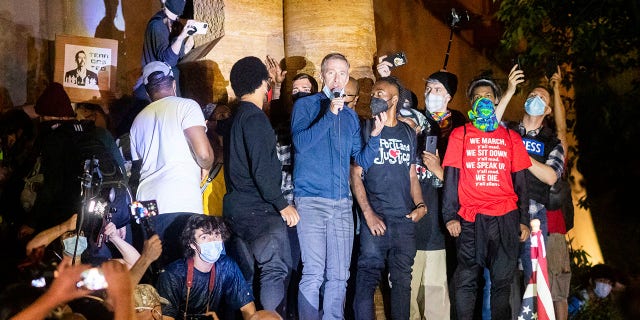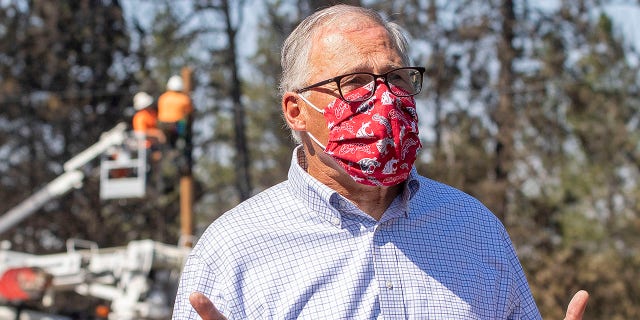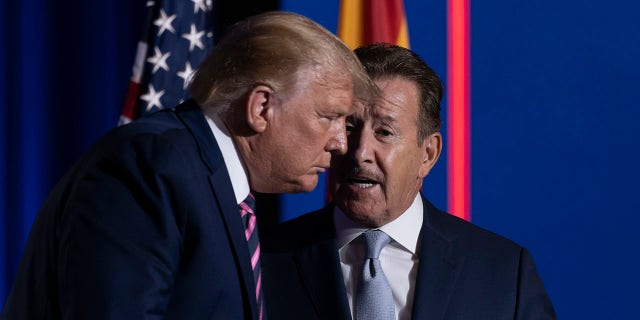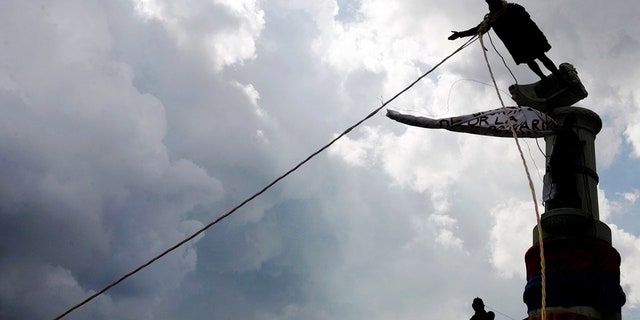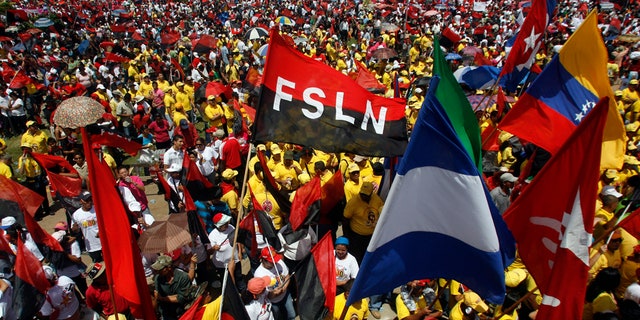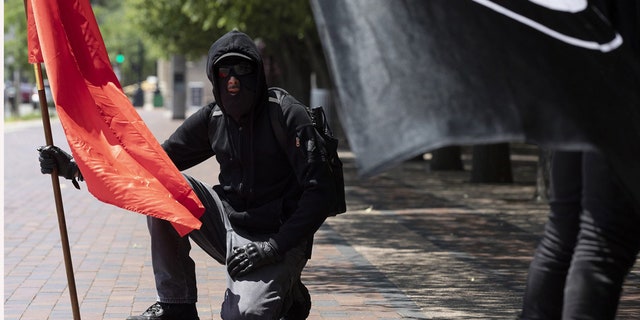One
of the most memorable moments from the Republican National Convention
came when Cuban-born Maximo Alvarez cautioned Americans against creeping socialism.
“I’ve seen movements like this before,” he warned last month.
The
Florida businessman is hardly alone among those who fled socialist
countries. On social media and in interviews with Fox News, other
immigrants who settled in the U.S. say that recent political shifts here
– including class warfare, riots and language policing, not to mention
calls for expansive government programs – are starting to remind them of
what they left behind.
And they carry the same message as Alvarez, urging Americans not to repeat history.
Venezuela
“The
millionaires, and anyone that was rich, were ‘the enemy of people’ in
Venezuela,” Elizabeth Rogliani, a young woman who left Venezuela for
America in 2008 and lives in Florida, said of her former country (though
she cited a term that President Trump now controversially uses against
the media).
She has been using her TikTok channel to try to tell people about that history.
Rogliani says she sees a parallel in politicians’ frequent attacks on “millionaires and billionaires.”
“Division
between the classes was something that Hugo Chavez wanted -- to make
sure that poorer sectors of society hated anyone that was wealthy,” she
said.
Venezuelan president Hugo Chávez often declared that being rich is bad.
He
defined capitalism as the "kingdom of the egoism of inequality" and
socialism as the "kingdom of love, equality, solidarity, peace and true
democracy."
Once, before Chavez became president in 1999,
Venezuela was the wealthiest country in South America. Venezuela also
has more untapped underground oil than any country in the world, even
Saudi Arabia.
But after Chavez ruled for more than a decade --
enacting strict price controls and seizing private businesses -- the
economy collapsed. Last month, after decades of mismanagement, the
country’s last oil rig shut down. Millions have now fled amid mass starvation and violence.
Rogliani said that in America, her biggest fear comes not from any one policy proposal – but from the overall culture.
“Seeing these riots knocking those statues … it’s so similar,” she said.
In little-known history, Chavez’s government officially renamed “Columbus Day” to "Indigenous Resistance Day” in 2002.
“In
2004, the Columbus statue came down in Venezuela. It was torn down by
mobs. People had been encouraged by Chavez’s rhetoric,” Rogliani said.
Venezuelan demonstrators use ropes to topple a Christopher
Columbus statue in Caracas, October 12, 2004. REUTERS/Jorge Silva
The origins of unrest in the U.S., of course, are
very different and unique to this country. Activists have pressed for
years to take down statues dedicated to the Confederacy, arguing the
country should not be honoring those who fought on the side of slavery.
The push has expanded in recent months, however, to target historical
figures who had been less controversial but nevertheless were connected
to slavery or other institutions. Meanwhile, protests and
sometimes-related looting that have hit American cities this summer
stemmed from anger over racial injustice and police brutality, following
the death of George Floyd in Minneapolis police custody.
Some
protests continue to be peaceful, while cities such as Chicago, Portland
and Seattle have dealt with more violent outbreaks for months.
Rogliani
cautioned, however, that such unrest can be exploited. Chavez
encouraged such thinking, Rogliani said, because he saw angry mobs as a
powerful tool.
Nicaragua
Several Latin American countries have seen an exodus of people fleeing to escape socialism. Nicaragua is one.
“What
we see now has all the same characteristics as I saw there … violence,
looting, damaging private property,” Roberto Bendana, a Nicaraguan
immigrant in Texas, told Fox News of the recent violence in the U.S.
Bendana left Nicaragua after revolutionary socialists took power in 1981 and confiscated his father’s coffee farm.
“Even
the flags! The protesters here in the U.S. are using the red and black
flags,” Bendana said, noting Nicaraguan socialist revolutionaries used
the same colors.
Sandinista supporters of Nicaragua's President Daniel Ortega
attend an event marking the 30th anniversary of the Sandinista
revolution in Juan Pablo II square in Managua July 19, 2009.
REUTERS/Oswaldo Rivas (NICARAGUA POLITICS ANNIVERSARY) - GM1E57K04L001
Anti-fascist protesters hold flags on the Christian Science Plaza,
Saturday, July 11, 2020, in Boston. (AP Photo/Michael Dwyer)
Cuba
More than a million Cubans have fled to the U.S. since Fidel Castro came to power in 1959. Among them was Maximo Alvarez.
“I
heard the promises of Fidel Castro and I can never forget all those who
grew up around me … who suffered and starved and died because they
believed those empty promises,” he said in his GOP convention speech in
August.
“You can still hear the sounds of those broken promises.
It is the sound of waves in the ocean carrying families clinging to
pieces of wood. It is the sound of tears hitting the paper of an
application to become an American citizen,” he added.
“My dad, who
only had a sixth-grade education, told me – don’t lose this place,”
Alvarez said of America. “My family is done abandoning what we
rightfully earned.”
Alvarez, despite coming from poverty, founded Sunshine Gasoline and became a millionaire. Alvarez noted that Joe Biden proposes “trillions in new taxes.”
For
his part, Biden maintains the proposed tax hikes would largely hit
those making over $400,000. He told ABC last month the “very wealthy
should pay a fair share,” along with corporations.
And the former vice president has rejected long-running efforts by the Trump campaign to tag him as aligned with socialists.
“Do
I look like a radical socialist with a soft spot for rioters? Really?"
Biden quipped last month, stressing he wants to keep the country safe
from looting as well as “bad cops.”
Dating back to the primary,
Biden had tensions with Sen. Bernie Sanders, I-Vt., a democratic
socialist, over his plans for “Medicare-for-All” and other policies. But
the democratic socialist wing’s influence over Democratic Party
policies will be closely watched in the months and years ahead.
China
Lily
Tang Williams, an immigrant from China who lives in New Hampshire,
personally experienced Chairman Mao’s economic policies and “Cultural
Revolution.”
She says she sees parallels with the unrest in American cities today.
“The
riots, looters, destruction of properties, it’s so familiar. It's scary
to me because I went through that,” she said. “The people who attack
small businesses in cities -- you see them take private property, and
they say, ‘we deserve this. This is reparations.’ And it’s just – this
is the Marxist way. It’s an excuse at the barrel of a gun.”
Recently,
protesters in D.C. accosted people at a restaurant and demanded they
raise their fist in support of their cause; those who declined were
harassed.
Tang Williams took aim at the “silence is violence” concept.
“You cannot even keep silence. You have to publicly agree with them. It’s fundamentally not American,” she said. “The tactics they use are very Marxist and communist. They did this in China. Everybody had to be PC.”
“Free
speech, and free thoughts and ideas -- that's what makes America great.
We don't have to agree with each other all the time, but we should be
able to have a civil discussion,” she said.
"I have
friends who attended Republican National Convention. They got harassed,
just walking out. Thank goodness they were not harmed ... But it is
scary,” she said.
On the same night, protesters similarly harassed Sen. Rand Paul and his wife, Kelley Paul, who called it the “most terrifying moment” of her life.
Tang Williams claimed that some Americans were falling for socialism only because they haven’t lived through it.
“People
here are allowed to peacefully protest. The protesters do not
appreciate the freedom they have in this country. … They have not
suffered from hunger, real poverty,” she said.
Maxim Lott is executive producer of Stossel TV and creator of ElectionBettingOdds.com. He can be reached on Twitter at @MaximLott.

